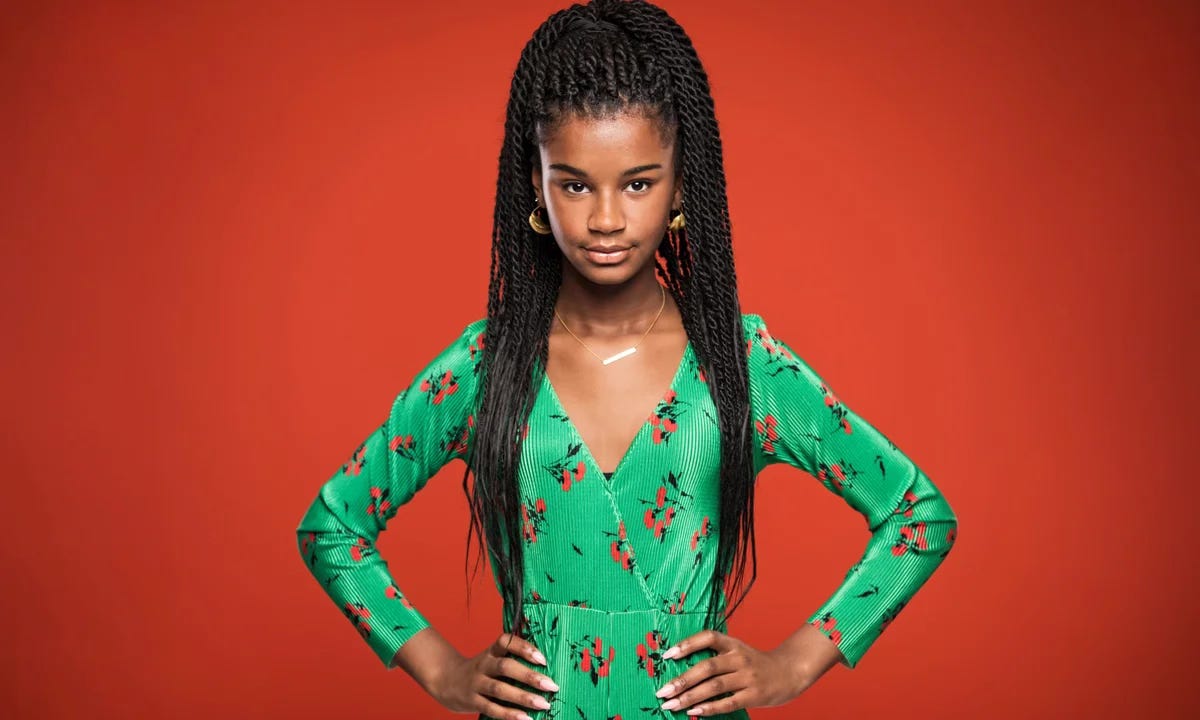Why Her Voice Still Matters: The Story of Marley Dias
How an 11-year-old’s fight for representation became a blueprint for resisting erasure today.
In August of 2015, eleven-year-old Marley Emerson Dias, from West Orange, New Jersey, noticed something missing in her classroom: books with characters who looked like her. Tired of reading story after story about “white boys and their dogs,” she decided to do something about it.
Later that year, Marley launched the #1000BlackGirlBooks campaign, setting out to collect and donate one thousand books featuring Black girls as main characters. What started as a school project quickly turned into a national movement. In just the first year, she gathered over 13,000 books and distributed them to schools and libraries around the world.
Her campaign didn’t just go viral — it changed the conversation. She was featured on The Ellen Show, CBS This Morning, and in Teen Vogue. In 2018, she was named one of TIME’s 25 Most Influential Teens, and later went on to interview Michelle Obama.
But Marley didn’t stop there. She authored her own book, Marley Dias Gets It Done: And So Can You!, a practical guide for young people who want to make a difference. Through storytelling and strategy, Marley urges her generation to speak up, organize, and imagine a world where everyone sees themselves reflected — especially in the pages of a book.
Beyond the headlines, Marley’s story is deeply rooted in her upbringing. The daughter of Jamaican-American activist and scholar Dr. Janice Johnson Dias, Marley was raised in a household that didn’t just talk about justice — they practiced it. That legacy of action continues in her work today, as she remains involved in conversations around education, youth organizing, and equity.
The Bigger Picture: Then and Now
When Marley launched her campaign, it was celebrated as a bold act of youth leadership and a feel-good story about representation. But nearly a decade later, the landscape looks very different.
Books like the ones Marley collected are now being banned in schools across the country. Conversations about DEI (Diversity, Equity, and Inclusion) — once considered progressive cornerstones — are being labeled as dangerous or “woke.” Educators are being fired, libraries defunded, and students silenced for uplifting the very values Marley stood for: inclusion, truth, and the right to be seen.
And in 2024, with Donald Trump re-elected, openly defying court rulings and doubling down on authoritarian rhetoric, we’re watching democratic norms buckle in real time. Efforts to erase marginalized voices from public life aren’t subtle — they’re part of a broader attempt to control how we learn, what we say, and who gets to belong.
Marley Dias’s work wasn’t just about repr
esentation in books — it was about reclaiming space. It was about choosing who gets to be centered in the stories we tell, and who gets left out.
Why Her Voice Still Matters
Marley Dias reminds us that activism doesn’t have an age requirement — and that the fight for visibility is also a fight for democracy. When young people like Marley speak up, they aren’t just asking to be included — they’re defending the very idea that everyone deserves a voice.
In a time when books are banned, histories are rewritten, and whole communities are silenced, Marley’s story matters more than ever. Not just as a moment of youth empowerment, but as a blueprint for resistance.
Because when we lose the stories that reflect us, we don’t just lose representation —
we lose the truth.
And the truth is: your voice still matters.
So speak up. Write back. Get it done.




